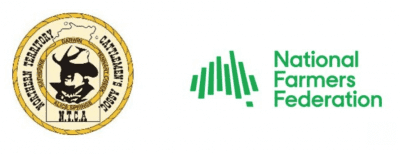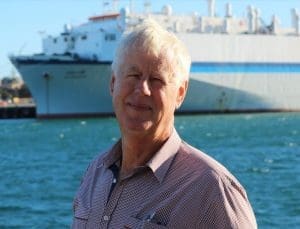As reactions to this morning’s Federal Court ruling appear from industry organisations, animal rights groups and political representatives we will publish them below.
Australian Farmers’ Fighting Fund
Northern Territory Cattlemen’s Association
Brett Cattle Company
National Farmers’ Federation
History-making decision rights the wrongs of live export shutdown
Justice has been served today for farmers and supply chain businesses whose livelihoods were decimated when the Federal Government recklessly shut down the trade of live cattle to Indonesia in 2011.
 In the Federal Court, Justice Steven Rares found former Agriculture Minister, Senator Joe Ludwig acting on behalf of the Federal Government, had committed the offence of ‘misfeasance in public office’ in his decision making. Justice Rares said the Brett Cattle Company was entitled to ‘substantial damages’ and the Commonwealth must pay court costs.
In the Federal Court, Justice Steven Rares found former Agriculture Minister, Senator Joe Ludwig acting on behalf of the Federal Government, had committed the offence of ‘misfeasance in public office’ in his decision making. Justice Rares said the Brett Cattle Company was entitled to ‘substantial damages’ and the Commonwealth must pay court costs.
Justice Rares was critical in his summary of how the approach of the then Minister and his Department was not fully considered by the then Government.
Justice Rares said the outcome was: “recklessly indifferent as to the availability of his power to make the Second Control Order in its absolutely prohibitory terms without providing any power of exception and as to the injury which the order, when effectual, was calculated to produce.”
The result is a monumental win for lead applicants: the Brett Cattle Company of Waterloo, the adjoining parties and the Australian Farmers’ Fighting Fund, the support of which made the case possible.
The decision comes exactly nine years to the day from the issuing of the first export control order by the then Gillard Government and following 18 months of deliberation by Justice Rares.
The case looked at the appropriateness of the Government’s decision making. The matter was a not a contemplation of the merits of the live export industry.
“Today justice has been finally served,” Class action facilitator and former Northern Territory Cattlemen’s Association Chief Executive Tracey Hayes said.
“The decision by Justice Rares represents a win in the interests of process, good governance and a fair go and is recognition of the devastatingly poor government decision that sent shockwaves across the Australian agriculture sector.”
“It puts all Governments on notice and sets a pathway that will serve to ensure a higher standard of Government decision making into the future.
“Most importantly it brings closure to a very challenging chapter for Emily, Colin, Alison and Hamish Brett of the Brett Cattle Company and the many, many other northern Australian farmers and businesses whose lives and livelihoods were thrown into chaos as a result of the shutdown.”
The decision found that the Minister followed the processes available to him and that he heeded the advice provided to him by the Department.
“It is clear that something happened within the processes of the then Government on the evening of 7 June 2011, that saw the Minister’s preferred and recommended course of action disregarded,” Ms Hayes said.
“The shutdown came at the very beginning of the exporting season, when there were cattle in yards, on farms, on trucks, in feedlots and on ships destined for South East Asia.
“At the very time when the sale of these cattle was to pay down debt and cover costs to operate. The decision impacted transport companies, vets, livestock agents and associated careers, contractors and local businesses – effectively bringing their businesses to a standstill.”
NFF President Fiona Simson said today’s result would not have been possible without the support Australian Farmers Fighting Fund.
“Since 1985, farmers have been investing in the AFFF to take the fight up on their behalf,” Ms Simson said.
“The AFFF intervenes in cases that have the potential to curtail the continued vibrancy of our farm sector, regional communities and Australia as a whole – this was one such case.
“Today highlights the great strength agriculture and regional Australia has when it unites for a common cause.
“It’s a reminder to farmers of the importance of keeping in touch with their representative bodies like the Northern Territory Cattlemen’s Association and the National Farmers’ Federation and to continuing to invest in the AFFF.
“This has been a monumental battle and it won’t be the last agriculture faces.
“There are and will be plenty more battles to be fought to protect the livelihoods and well being of future generations.
“A ‘team agriculture’ approach will undoubtedly yield the best results.”
The process to determine compensation will begin later in the month.
WA Pastoralists and Grazier’s Association
Time for Governments to consult, rather than react

Tony Seabrook
“This ruling over the 2011 ban, described by Justice Rares as “capricious” and “unreasonable”, clearly illustrates the continual practice of knee jerk policy decisions made by government bureaucrats in Canberra when dealing with the live export industry,” Pastoralists and Graziers Association President Tony Seabrook said.
“One only has to look at the 2018 suspension of sheep exports out of Western Australia to show that there is a serious and continual practice of Government policy being based on responses to current affairs programs such as 60 Minutes and Four Corners, which constantly show the live export industry in the most negative light possible, rather than showcasing the positives about the industry, and the tremendous job exporters do in ensuring the health and welfare of the animals on these voyages.
“Our Government bureaucrats are basing their decisions to suspend or ban live exports to a particular country, or during a particular season, on a small sector of the public’s reaction after watching a heavily edited television program, with no consideration given to the impact it will have on producers, exporters, as well as our overseas customers.
“It is high time that our elected MPs and Ministers learned this lesson and put an end to this practice within their Department, which has now been ruled by the Federal Court as unlawful.”
Animals Australia
‘Industry bodies let cattle producers down, not Government’
In 2005 the live export industry published a report warning of the PR nightmare that would unfold if the Australian public was made aware of animal slaughter practices in Indonesia. It was one of six separate industry reports that consistently highlighted significant abuses facing cattle exported to the country including head slapping during cruel roping slaughter, eye gouging, tail breaking and ineffective throat cutting – all leading to prolonged and painful deaths for the animals.

Lyn White. Image: Animals Australia
This ‘PR nightmare’ became a reality in 2011 when Animals Australia documented routine slaughter practices across four cities in Indonesia. Our evidence, along with that independently obtained by ABC’s Four Corners program, was broadcast on Australian television.
In the Federal Court today Justice Rares stated that the footage in the [4 Corners] program: “depicted appalling cruelty to cattle in a significant number of Indonesian slaughterhouses and several scenes showing the uses of Mark I boxes which subjected the animals to very cruel treatment.”
Perhaps more shocking than the industry’s preparedness to knowingly supply millions of cattle to cruel treatment over two decades, was their facilitation of it, through the installation of brutal slaughter boxes. Boxes which according to world-renowned animal behaviour expert Dr Temple Grandin, breached ‘every humane slaughter standard anywhere in the world.’
In the fall-out of this exposé, Meat and Livestock Australia admitted that 92% of cattle exported to Indonesia – some 500,000 a year – went to facilities where they would be slaughtered while fully conscious. That means, the vast majority of cattle exported to the country faced the very same abuses Four Corners famously exposed.
Former Agriculture Minister, Senator Joe Ludwig, enacted a temporary 5-week suspension of trade to ensure that cattle exported to Indonesia wouldn’t continue to be at risk of eye gouging, tail breaking, head slapping, or being restrained in brutal Australian-designed Mark I slaughter-boxes that caused immense pain and suffering.
While the Federal Court has today found that Senator Ludwig erred by not allowing for exemption applications, it also acknowledged Senator Ludwig received advice as to the difficulties of policing where animals were supplied to in Indonesia. This factor has subsequently been reinforced by numerous breaches of the ESCAS ‘closed loop’ system in importing countries.
In 2006, the Howard government similarly acted to prevent cruelty in the live cattle trade by suspending shipments to Egypt on the provision of evidence of local slaughter practices that involved tendon slashing and eye stabbing. Practices once again that the Australian live export industry admitted they were aware of yet exported 1 million cattle to Egypt anyway.
Quotes from Lyn White:
“While processes and decisions made by Senator Ludwig were scrutinised by the Federal court, it should not be forgotten that the brutality Australian cattle faced in Indonesia was widespread and well known to exporters and Meat and Livestock Australia for over a decade. It was they who let cattle producers down, not the government.
If anyone is to ‘blame’ for economic losses that resulted in the temporary halt in trade, it isn’t the government that prevented further animal cruelty, it’s the industry body that not only ignored it, but facilitated it.
Had this 5-week suspension of trade not been imposed, changes in Indonesian slaughterhouses that now see the vast majority of exported Australian cattle stunned unconscious before slaughter, would not have been implemented.
There are many Australians today who remain deeply grateful to Joe Ludwig for having the courage to make a decision that was in the interests of animals. Senator Ludwig in 2011 offered affected producers compensation and all animal protection groups publicly supported compensation being provided.
We accept the legal determination by the Federal court and wish the plaintiffs well. In the aftermath of this court case, regardless of whether we are pro live export or opposed to it, it is our hope that all can agree that cattle should be protected from cruel treatment and should not be abandoned to a traumatic, brutal death.”
Queensland Senator Susan McDonald
Government must accept the decision and pay the required compensation
“Northern Australia is our primary source of live export cattle and the ban in 2011 decimated not just the industry but all its supporting industries,” she said.
“In addition to graziers, transport companies, mechanics, suppliers and fencers just to name a few were smashed virtually overnight.
“It’s impossible to put into words the hardship people suffered as a result of this ill-thought-out kneejerk ban.

Susan McDonald
“All that live export beef flooded the domestic market, crippling prices and compounding the pain for beef producers across Australia.
“Graziers already battle the uncertainties of commodity prices and weather, so to have your own Government attack you like this was entirely unexpected and – in the words of Justice Stephen Rares – was capricious and unreasonable.”
Senator McDonald, herself from a cattle farming family in North West Queensland and with years of experience in the beef sector before joining the Senate, said the live export trade was among the most heavily regulated and scrutinised in the country.
“As a result, our animal welfare standards are the highest in the world, so when Australia doesn’t supply, animals suffer as demand for meat is filled by less scrupulous exporters,” she said.
“For instance, it was recently reported that cattle travel by ship for seven days from Darwin to Asian markets, but 27 days from South America.
“If we allow opponents of live export to influence government policy, we are letting animals down and we lose our ability to be an example to other countries.
“What’s most impressive is that much of live export’s regulation and oversight has been driven from within by the industry all the way from rearing cattle, to fattening and transport both domestically and to overseas markets.
“Australia has also provided considerable assistance to countries that receive our cattle to improve their own standards.
“The Labor Government of the time showed they didn’t understand regional Australia and its industries, and sadly this lack of understanding continues today.
“I sincerely hope the Federal Government accepts the Justice’s ruling and compensates appropriately.”
RSPCA
Horrific treatment of cattle must not be overlooked
The RSPCA says the horrific treatment and handling of cattle in the live export trade, which led to the 2011 suspension, must not be overlooked in today’s court decision.
This suspension of live cattle exports came about because Australian cattle were being horrifically treated and brutally slaughtered in Indonesia.
 While these conditions were known to the industry and the government, it was only revealed due to the efforts of animal welfare groups and an ABC investigation.
While these conditions were known to the industry and the government, it was only revealed due to the efforts of animal welfare groups and an ABC investigation.
That truth about the fate of Australian animals shocked the nation and changed the landscape for live animal exports, forever.
That treatment of Australian live exported cattle should never have been allowed to happen.
Once revealed, it would have been unconscionable for any Australian Government not to act.
The benefits that resulted from this dark time include the establishment of the Export Supply Chain Assurance Scheme, or ESCAS, to monitor the welfare of exported animals from departure through to slaughter.
While not perfect, it represented a significant step in the right direction and is now lauded by the live export industry – but it would never have been created without the catalyst of the Indonesian crisis.
While improvements have been made, there remain hundreds of abattoirs that are approved under ESCAS for unstunned slaughter of exported livestock, and it’s likely the fate of those animals would shock and distress most Australians.
The RSPCA hopes this experience will encourage industries and governments to invest in addressing animal welfare issues proactively so as to avoid significant disruptions to their operations in the future.
Cattle Council of Australia
Justice for cattle producers
Cattle Council of Australia (CCA) says the Federal Court ruling against the Gillard Government’s 2011 live export ban will give our trading partners greater confidence in Australia’s beef industry.
 Former Agriculture Minister, Joe Ludwig brought in a second export control order banning all live exports to Indonesia in June 2011, after vision of cruelty in Indonesian abattoirs was run on the ABC’s Four Corners program.
Former Agriculture Minister, Joe Ludwig brought in a second export control order banning all live exports to Indonesia in June 2011, after vision of cruelty in Indonesian abattoirs was run on the ABC’s Four Corners program.
Earlier today Justice Rares ruled the ban invalid as there was no exceptions for producers who could assure animal welfare.
CCA President Tony Hegarty said the impact was felt across the entire cattle industry.
“Joe Ludwig’s actions undermined the integrity of the Australian beef cattle industry,” Mr Hegarty said.
“Australian beef producers are world leaders in animal welfare, and they should be respected for it.
“The impact was devastating to Northern producers and communities and it trickled right through our industry.
“When our political leaders act in a rash and unpredictable manner, our overseas partners lose confidence in our product and trading relationship.
“This hurt our trading relationship with Indonesia by taking away surety of supply – something our industry prides itself on.
“At the same time, it hurt our relationship with other trading partners by undermining our reliability and world-leading animal welfare standards.
“Our cattle producers have developed an Exporter Supply Chain Assurance System (ESCAS) to uphold animal welfare standards in receiving countries.
“No other country assures animal welfare standards after export as we do in Australia.
“The industry had already suspended the supply of cattle to three facilities where cruel practices were identified before the ban was imposed – and had introduced better training and practices.
“This knee-jerk decision had far reaching animal welfare implications in the production system.
“The 2011 ban caused an animal welfare disaster, when cattle were left stranded on ships, in ports and in holding yards.
“Today’s decision is a watershed moment that will set boundaries for the way governments act in the future.
“This would not have happened without the courage of the Brett family and the Australian Farmers Fighting Fund that stood up for what’s right and what’s fair.
“The cattle industry underpins Australia’s live export industry. Live cattle exports are worth more than $1.6 billion a year and support thousands of jobs right across the country, from the big cities to the outback.”
Federal Member for Kennedy Bob Katter
‘Today is a great day for Australia’
KAP Federal Member for Kennedy Bob Katter has applauded Emily Brett of the Brett Cattle Company at Waterloo Station in the Northern Territory after the class action they led against the Commonwealth – challenging the Gillard Government’s disastrous decision to ban live cattle exports to Indonesia in 2011 – was today ruled as “invalid” by the Federal Court.
 “Today is a great day for Australia, law, justice and the rights of the common man,” Mr Katter said.
“Today is a great day for Australia, law, justice and the rights of the common man,” Mr Katter said.
“Emily Brett, as a mother of three kids said she was going to get up and fight. She was one person and she has changed the laws and the way we act in Australia and she has given great hope to the taxi owners, the dairy producers and the hundreds of people who the government kicks to death and thinks they can get away with because the Government is above the law.”
The Court found that the Ban Order was “Capricious and Unreasonable” and that the Gillard Government made “no attempt to come to a reasonable solution with the Indonesian Government”, a move which ultimately led to her downfall as Prime Minister with the guillotine controlled by Mr Katter after he facilitated meetings and a cattle tour with the Indonesian Ambassador and negotiated its revival under a Rudd-led Government.
“I took a stand and got rid of Julia Gillard and had to back the ALP to do it which cost me greatly. It just had to be done and within one week of installing Kevin Rudd as Prime Minister the market was reopened and the price of cattle had doubled in two months.”
Mr Katter said his move to protect the cattle industry and roll the Prime Minister ultimately led to his own near-demise at the next election when he almost lost his seat having been tarnished by the image of being associated with Labor.
“I call on all Members of Parliament to be inspired by this and to stand up for what you believe in. Don’t become a filthy irrelevancy held up as a puppet on a string for your political party.
“I plead with my fellow members of parliament; don’t sacrifice your beliefs for your seat in Parliament. It was important that I was sacrificing my political life for a good cause and you can do the same for the dairy crisis.”
Brett Cattle Co and the others involved in the Class Action will now be entitled to substantial damages and payment of the costs mounted during the nearly decade long battle against the Commonwealth. Mr Katter warned current and future state and federal leaders to pay attention to the power of the little guys and let the case serve as a crucial warning.
“This has given great hope to the dairy producers and the taxi owners. The Government thinks it is above the law. Well Magna Carta says you are not above the law, the Declaration of Independence says you’re not above the law. So Madam Palaszczuk, be warned; you’re next with the Federal Court on the taxi case.”
